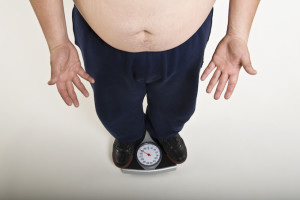
Deceptive Weight Scales
For many people stepping on the weight scale for the week gives us a feeling of unexpected anxiety. Whether attempting to lose weight or add muscle mass for size, we’re never truly satisfied with the number that stares back at us.
Losing body fat is the biggest problem that we face in the sedentary world that we live in, we frequently drive everywhere and never find enough time after work to exercise.
Looking at your weight often creates emotional stress for many people, a big reason why some people choose not to disclose their frustration trying to lower it year after year.
While weight is something to consider, many of the ideas we were taught about weight aren’t necessarily true as our weight doesn’t truly reflect what’s changing in our bodies as we adapt to consistent exercise and healthier diets.
Continue reading to find out what variables really affect our weight and why your weight number doesn’t really matter.
Factors for Improper Weight
Many popular fitness books written by experts tell you to weigh yourself on a daily basis to track your weight and make adjustments accordingly as the months roll by.
The problem with this advice is that they never disclose the many factors affecting the scale when you weigh yourself.
Observing your weight too frequently can cause you to second-guess what you’re doing and sabotage something that may already be working.
These are some of those factors:
- Temperature: When you place a subjective object on a scale (such as a dumbbell), it should show the exact same weight consistently each day. This never occurs because the temperature can fluctuate the weight of an object on the scale from a few ounces to a several pounds. This means the weight measurement on a cold day can be completely different than a measurement on a much warmer day.
- The Surface of the Scale: The surface of the weigh scale you use should be on a flush surface that doesn’t have any inclination or rivets that can throw the measurements of your body weight off. That means it should not be placed on a carpet or any kind of unevenly tiled surface.
- Distribution of Weight on Scale: Something as simple as the placement of your feet can throw off the weight measurement by a pound or two. The weight scale calculates your weight by the gravity pressure on the foot placement area and displays it as a kilogram or pound.
- Type of Scale Used: Some weight scales are more accurate than others, which is why there’s a wide selection of scales for purchase at department stores and medical clinics that claim to be better than others. In a study evaluating home weight scales, they found that digital scales were more accurate than dial-type scales, with a very accurate 1% margin.
- Calibration: The scale that you’re using at the gym (or in your home) should be calibrated regularly according to manufacturer’s standards for the best accuracy. If you’re using a scale you’re not familiar with, there’s no telling when the last calibration was done and how much you really weigh! Calibration is really as simple as resetting the device to 0 on the scale with a dumbbell.
How to Properly Weight Yourself
To properly weight yourself, you should be selective on the type of scale you regularly use. Changing scales too frequently will not get you accurate results as many of these scales have too much room for error (calibration, temperature, etc.).
The second thing you should keep in mind is how frequently you weight yourself. While weighing yourself every day or every other day would seem to make more sense, it can just frustrate you.
For one thing, if you’re new to regular weight training (within 2 years) your body is primed to build muscle and burn fat at the same time. This means your weight will dramatically changing and weighing yourself that often will serve no purpose except to confuse you (see Why Weighing Yourself Is A Waste of Time).
Instead of weighing yourself every day, discipline yourself to only step on the scale once a week. A complete week gives you a better view of how you improved without making drastic changes to your diet and/or your workout regiment.
The Wrap Up
Weighing yourself causes anxiety as many of the factors that display your number are completely out of your control. When you spend time focusing on your weight number, your fitness journey becomes more frustrating and difficult. If it’s important for you to measure your weight for your sport or profession, stick to one scale and do your best to keep track of your weight on a weekly basis.
